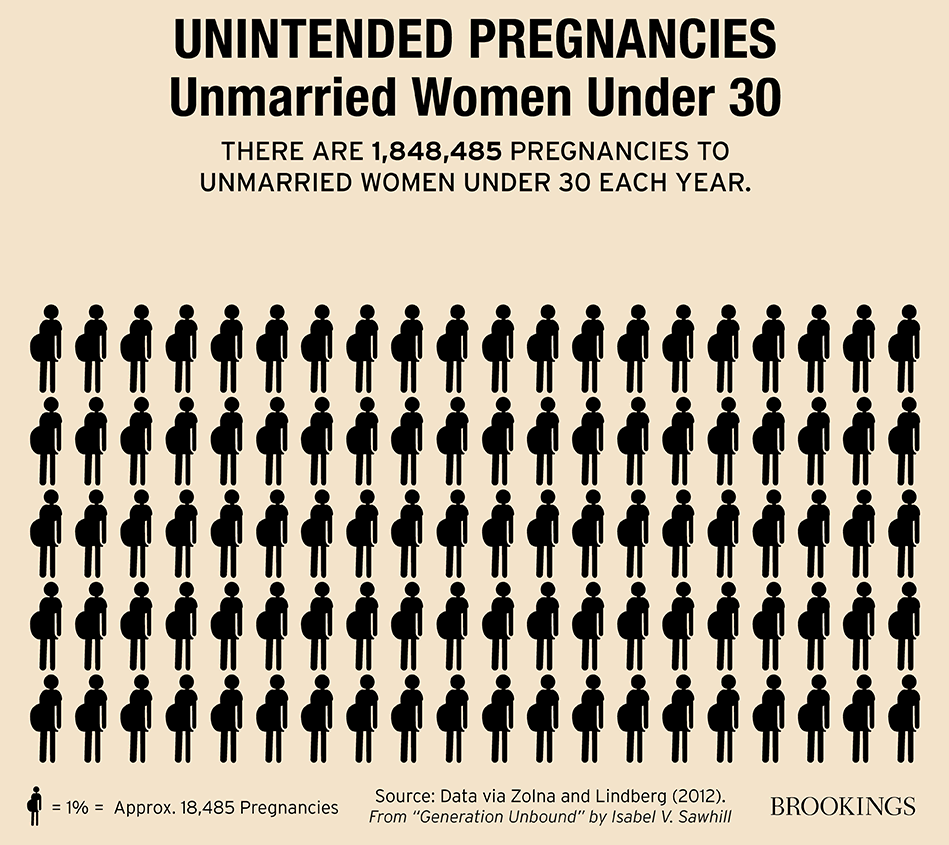


At the top are “planners,” who are marrying and having children only after establishing a career. This trend is driving a growing class divide.

Over half of all births to young adults in the United States today occur outside of marriage, and most are unplanned. Sawhill draws on insights from the new field of behavioral economics, showing that it is possible, by changing the default, to move from a culture that accepts a high number of unplanned pregnancies to a culture in which adults only have children when they are ready to be a parent. These two distinct patterns are contributing to an emerging class divide and threatening social mobility in the United States. Sawhill offers a third approach: change "drifters" into "planners." In a well-written and accessible survey of the impact of family structure on child well-being, Sawhill contrasts "planners," who are delaying parenthood until after they marry, with "drifters," who are having unplanned children early and outside of marriage. The left argues for more social support for unmarried parents the right argues for a return to traditional marriage. The result is increased poverty and inequality for children. The series will feature Brookings scholars discussing key policy issues in the election, and spotlights from academics on key senate races.Over half of all births to young adults in the United States now occur outside of marriage, and many are unplanned. (31:10) Introducing a new series of FixGov blog posts on the website that will focus on the upcoming midterm elections. (29:03) In a new feature, Senior Fellow David Wessel, director of the Hutchins Center on Fiscal & Monetary Policy, offers his thoughts in “Wessel’s Economic Update.” The phenomenon has, however, also been referred to by Edin as the “family-go-round.” The phrase “marriage-go-round” was originally used in sociologist Andrew Cherlin’s book of the same name. * N.b.: In the podcast, Sawhill refers to the concept of “marriage-go-round” and cites Kathy Edin.


 0 kommentar(er)
0 kommentar(er)
